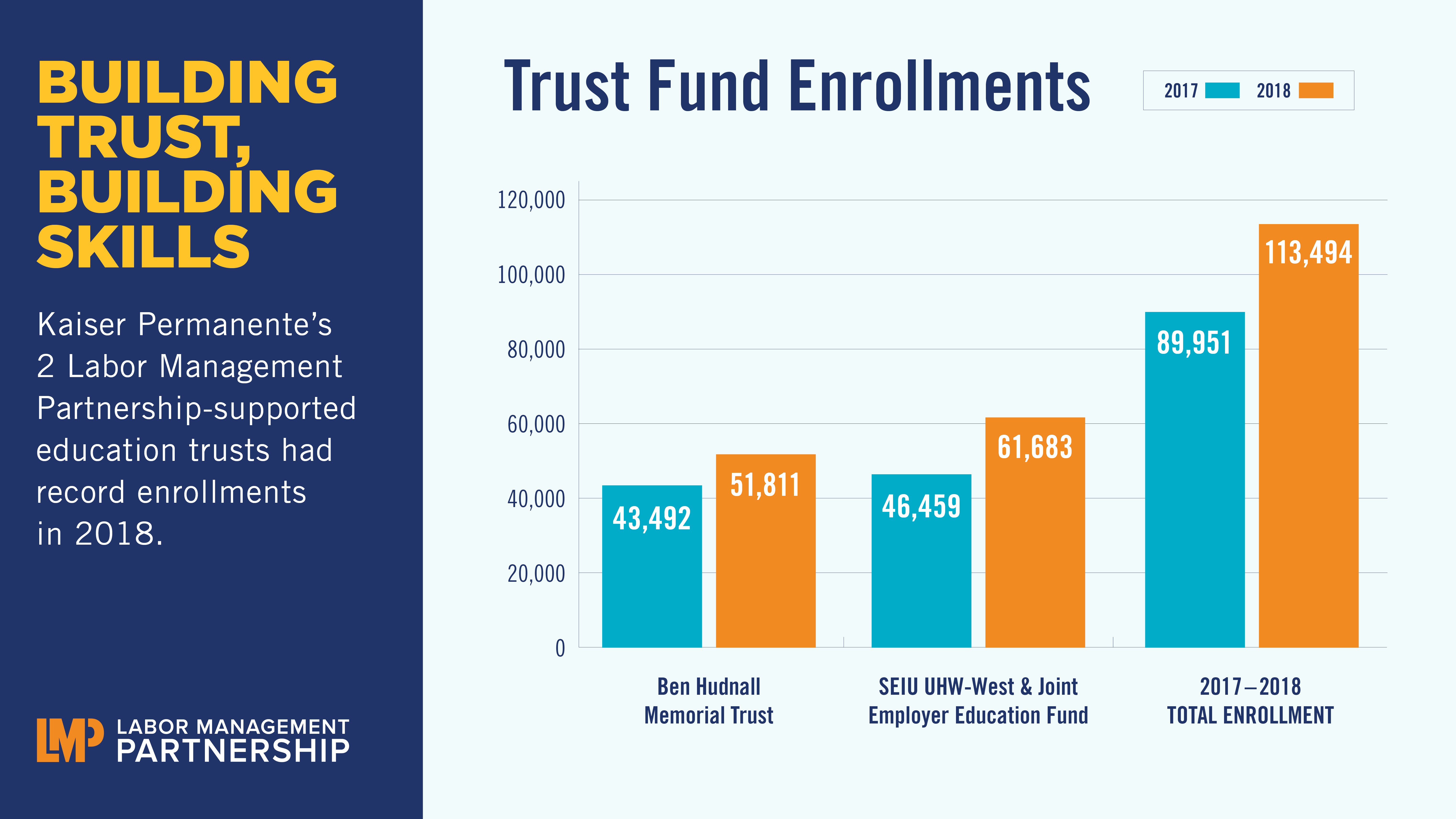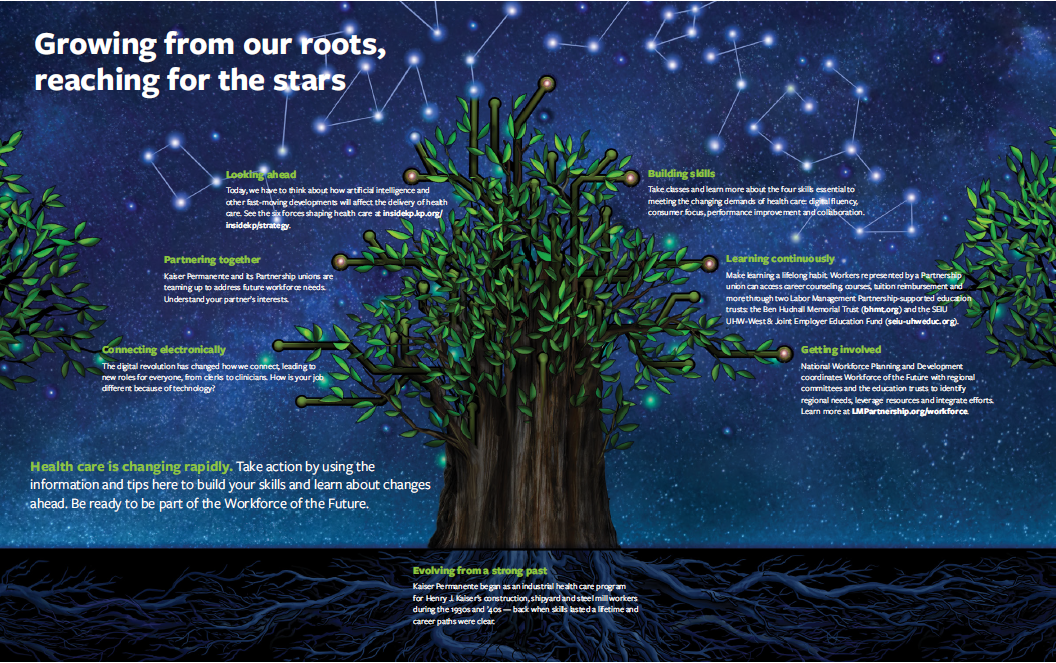Deck
Explore Workforce Development Week resources
Kaiser Permanente offers many resources to help you advance your career.
Looking to get started? View sessions from Workforce Development Week and follow these 5 recommendations from the October virtual event.
1. Keep learning.
Kaiser Permanente encourages lifelong learning. Resources range from mentoring to tuition reimbursement for everyone to education trusts for eligible union members.
Sadao Nakachi, an emergency room registered nurse and UNAC/UHCP member in the Southern California Region, advanced professionally by using tuition reimbursement and the Ben Hudnall Memorial Trust to earn bachelor’s and master’s degrees.
Ingris Solares, an SEIU Local 105 member in the Colorado Region, began as a phlebotomist before completing a yearlong apprenticeship program with the SEIU UHW-West & Joint Employer Education Fund to become a medical lab technician.
View their success stories in the Day 1 and Day 2 employee panels.
2. Have a growth mindset.
Feel stuck in your current job? Reframe your thinking, says Michael Brown, vice president of Human Resources in the Georgia Region.
“You’re really not stuck. What you’re doing is developing expertise on that job. It provides you an opportunity to deliver strong results. That is good currency that you can take with you to that next position,” Brown said in a career expert panel.
View a recording of the leader panel.
3. Talk with your manager.
Managers should encourage employees’ career growth, says Kerrin Watkins, Dental Office manager in KP’s Northwest Region. She discusses workforce development with team members to understand their needs, inform them about resources and support their use of education trusts.
“Invest in your employees,” Watkins says. “If you take care of your employees, your employees will take care of your business.”
View Day 3 videos from Watkins and Georgia Region managers Philidah Seda and Sophia Wilson and learn more in the Manager’s Guide to Workforce Development.
4. Follow your professional dreams.
It’s never too late to develop your career, says Dennis Dabney, senior vice president, National Labor Relations and Office of Labor Management Partnership.
When Dabney was 40 and working in Human Resources for an automotive parts supplier, he decided to go to law school. He studied nights and weekends to get his degree. His extra work paid off, opening doors to career growth. Learn more in Dabney’s Day 1 video.
5. Just do it.
Kaiser Permanente employees can receive tuition reimbursement of up to $3,000 each year for successfully completing eligible courses.
Hiren Patel, a senior systems administrator in the Northern California Region, started as a pharmacy tech. He moved up in the organization using tuition reimbursement to get a bachelor’s degree and is currently pursuing a master’s degree.
“Make a plan and be flexible,” Patel says. “Just do it.”
Listen to Patel’s story on the Day 2 launch of the Excel Yourself podcast and explore the event’s website for additional episodes, Ask an Expert sessions, videos and more.
National Workforce Planning and Development hosted Workforce Development Week in collaboration with the Alliance of Health Care Unions and Coalition of Kaiser Permanente Unions.


